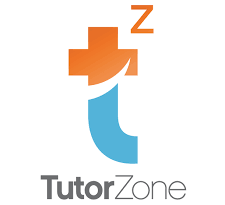School counselors play an incredibly influential role in the lives of students. They aim to provide individualized support to each student within their school, but unfortunately it can become difficult at times. The current ratio of school counselors to students in California is 527 to 1. This seems like an impossible number of students to manage, and in most cases it is. There are students who sometimes “fall through the cracks” and don’t receive the guidance and support needed to achieve academic success.
This is why California has decided to make an investment by encouraging the ratio of school counselors to students to be 250 to 1. Although this number is still large, it provides counselors the opportunity to spend more time with students throughout the year. They will be able to better recognize the needs of students, hopefully allowing students to feel better supported to succeed. KPCC released an episode discussing this imminent need to increase school budgets to increase the ratio of school counselors to students. They welcomed experts in the field to discuss what plans should be made to meet student’s needs, and included thoughtful shoutouts to counselors who made an impact on the lives of students.
The Role of School Counselors
A school counselor is a trained professional who works within the school setting, mostly in primary and secondary schools, to provide students with a support system to succeed in school and beyond (ASCA). They help all students in academics, mental health, and planning for the future. They are trained professionals who typically attend 3-year graduate programs to attain a minimum of a master’s degree in school counseling. Counselors also are required to meet the state certification/licensure standards. Along with a master’s degree, school counselors must attain a PPS (Pupil Personnel Services) credential which allows them to provide support and resources to students and school staff (KPCC).
A school counselor’s role extends past simply helping students create class schedules. They also support the student population in managing their emotional wellbeing and helping them achieve their goals after high school. As is the case for many educators, school counselors advocate to promote equitable learning and opportunities for students from all backgrounds.
Within marginalized communities, school counselors play an influential role in the academic lives of students and have been directly linked to academic achievement in these communities (Southeastern, 2021). Students are typically expected to meet with their counselor at least 1-2 times a semester. These counseling sessions typically involve class schedule planning, and a check-in with students over their academic progress. In high school a requirement that is emphasized in these sessions is A-G requirements. These requirements are necessary to apply to the UC and CSU system. They consist of fifteen high school level courses that must be completed with a C or better. The individualized support counselors can provide in these meetings help students overcome any personal barriers they may be facing in their life to achieve academic success in school.
These personal barriers can sometimes negatively affect the emotional wellbeing of a student. They may be faced with obstacles leading them to develop mental health issues in severe cases. The social-emotional support counselors can provide to students include cognitive therapy techniques, as well as social-based therapy. As stated in the KPCC podcast, there are cases where a student needs to be referred off site to meet with other forms of intervention counselors. These cases are rare, but as the first line of defense, school counselors can create a support system that is individualized to each student. Fortunately, there are some school districts, like the Santa Ana School District, that have created “wellness coordinated plans” that create a team of support with a community liaison to help inform the community on the prevalence of mental health issues in school (KPCC). In addition, this also helps to connect students with different systems of support and resources within their communities.
Particularly in high school, school counselors focus on helping students pursue higher education. This is done through the emphasis on A-G requirements, as well as the abundance of resources given to students on higher education. In the KPCC episode on school counselors, a shoutout was given to a school counselor for the effort they put in organizing college field trips, gathering guest speakers, and their offer of individualized support. The individual who shouted out the counselor accredited them for helping students learn about different fields and colleges they can pursue. These resources and opportunities to learn about different options are especially important in communities with first generation students who are not as familiar with higher education.
Meeting Students’ Needs
To meet this newly instated recommended ratio, more individuals need to be inspired to go into graduate school level school counseling programs. Loretta mentioned in the KPCC episode that more slots need to be available within CSU’s and UC’s and more funding needs to go into these programs to help financially support student tuition costs. These specific school counseling programs help individuals develop a specific skill set that no other school faculty has. School counselors are trained to understand school climate, and how to build trusting relationships with students and staff.
An increase in funding is needed across all school districts to help increase the number of school counselors on-site. As the first line of defense for students, counselors need to be able to manage the number of students they are expected to serve. By creating a smaller counselor to student ratio, counselors are better able to serve the academic, emotional wellbeing, and higher education needs of students. Through these relationships, students will achieve success in school and in life.
Written by: Viviana Cabrera
Sources
https://online.se.edu/articles/education/counselor-role-in-academic-success.aspx
https://www.schoolcounselor.org/getmedia/ee8b2e1b-d021-4575-982c-c84402cb2cd2/Role-Statement.pdf

